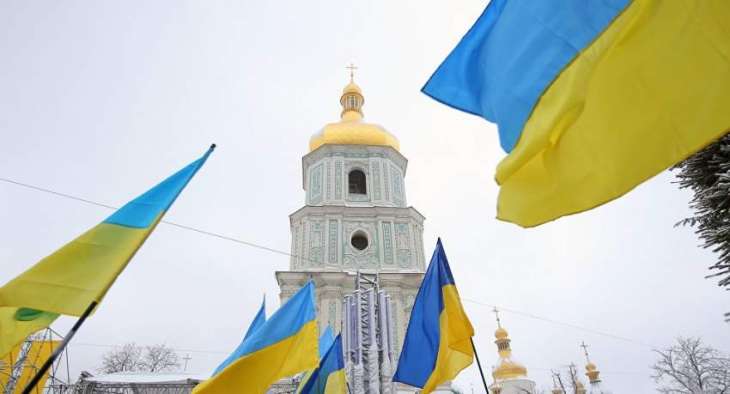Two parishes of the canonical Ukrainian Orthodox Church of the Moscow Patriarchate (UOC-MP) have merged together and joined the new "church" of Ukraine, a representative of the "church" and "Metropolitan" Anthony (Makhota) of Khmelnytskyi and Kamianets-Podilskyi claimed
MOSCOW (Pakistan Point News / Sputnik - 31st December, 2018) Two parishes of the canonical Ukrainian Orthodox Church of the Moscow Patriarchate (UOC-MP) have merged together and joined the new "church" of Ukraine, a representative of the "church" and "Metropolitan" Anthony (Makhota) of Khmelnytskyi and Kamianets-Podilskyi claimed.
"Two religious communities in Bokyivka village, Volochysk district (former the UOC-MP [Church of] the Nativity of the Mother of God and the UOC-MP [Church of] the Icon of the Mother of God 'Support of the Humble') decided to merge with each other and join the Khmelnytskyi eparchy of the [Orthodox Church of Ukraine] OCU. The priest of the [UOC-]MP left the village and handed over the keys to the church to the community," Makhota wrote on Facebook on Sunday.
The statement comes after Ukrainian media reported on Friday that two UOC-MP churches in eparchies of Dnipropetrovsk and Mukachevo joined the new "church." Later, the dioceses dismissed the allegations.
On December 15, a "unification council" was held in Kiev on the initiative of Ukrainian President Petro Poroshenko and Constantinople Patriarch Bartholomew, during which Epiphany Dumenko was elected head of the new "autocephalous church." The council was attended by representatives of mostly non-canonical structures, which are not recognized by the world's Orthodox churches, except for the Constantinople Patriarchate. In early January 2019, Kiev expects to get tomos of autocephaly from Constantinople.
The Moscow Patriarchate described the situation as the "legalization of schism," stressing that it would have catastrophic consequences and affect millions of Christians in Ukraine and other countries. It also said that the canonical meaning of the "council" in Kiev was insignificant, and the possibility of recognizing Epiphany in the Orthodox world was a task "hardly possible to fulfill."




